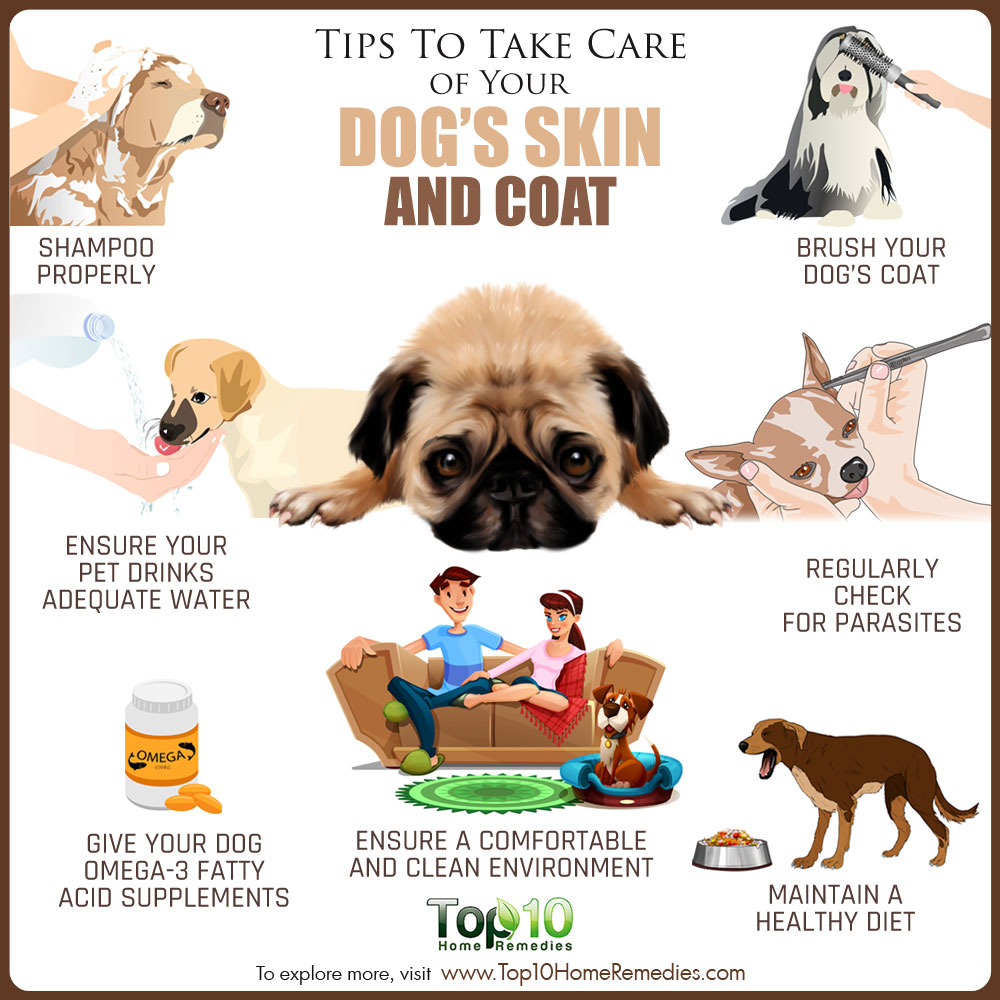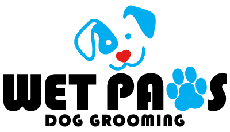Tips to Take Care of Your Dog’s Skin and Coat

Just like your own skin and hair, a dog’s skin and coat are reflections of his overall health.
It is very important to take care of your canine friend’s skin and coat, as the skin is the largest and one of the most important organs of the body. The skin forms a barrier to protect your dog’s body from various infections, and it helps maintain the body’s internal environment.
A dull coat of fur or skin irritation is a sign that your pet may be suffering from some internal or external issues. Some common skin and coat issues that your dog may suffer from are itchy skin, dull fur, excessive shedding, hot spots or rashes, dermatitis, dandruff and hair loss.
If your pet is biting at its skin, scratching obsessively and losing fur, it is a clear sign that your dog’s skin and coat are not healthy.
Keeping your dog’s skin healthy is not a big chore. Just a few extra steps or tips can keep your furry friend’s skin and coat healthy all throughout the year.
Here are some tips to take care of your dog’s skin and coat.
1. Shampoo Properly
Your dog needs frequent baths to maintain healthy skin. In the spring and summer, you need to bathe your pet more frequently than during the winter months.
The frequency will also vary depending on your dog’s breed, coat, activity level and any medical conditions (like allergic coat disease). The frequency may vary from once a week to once a month, depending on these factors.
However, do not bathe your furry companion too often as it may strip the coat of natural oils and lead to dry skin and irritation.
It’s important that you use the correct shampoo to have a positive impact on your dog’s skin and coat health. A good shampoo can stave off a number of skin problems, as well as make your dog’s coat look nice and shiny.There are many shampoos to choose from depending on your pet’s coat, skin condition and desired result. Your veterinarian can suggest the right product for your furry friend.
Never use shampoos made for humans. They may contain harsh chemicals that could damage your dog’s fur or sensitive skin.
Make sure to brush your dog’s coat before shampooing to detangle the mats that may trap shampoo. After shampooing, be sure to rinse its coat thoroughly. Any residual shampoo or conditioner can irritate the skin and make the fur look dull and lifeless.
2. Brush Your Dog’s Coat
To maintain a healthy skin and coat, groom your dog regularly.
Brushing your dog’s fur helps distribute the natural oils on the skin. Furthermore, it stimulates the skin and hair follicles, which in turn increases the natural production of skin oils that make the coat shiny. Brushing also helps prevent matting and reduce shedding by removing loose fur.
Another plus is that while doing so, you get to spend some quality time with your pet.
Brush your dog at least once every other day. Always select a brush that is appropriate for the type of fur your dog has.
Also, if your dog has long hair, keep it trimmed to prevent skin and coat problems. You can trim the hair yourself or use the services of a professional groomer. Reputable groomers can also clean your dog’s ears and trim their nails.
3. Maintain a Healthy Diet
A nutritionally rich diet plays an important role in maintaining the health and condition of your dog’s skin and coat. Remember, the better your dog’s food, the better your dog’s coat.
Hair is mostly made of protein, hence a protein-based diet is important. In addition, your dog’s diet should include healthy fatty acids, calcium, phosphorus, magnesium, potassium, iron, zinc, copper, folic acid, biotin and vitamins A, B6, B12, C, D and E.
If you want your dog to have a rich shiny coat and healthy skin, you can feed them foods like eggs, almonds, chia seeds, coconut oil, oats, liver from grass-fed animals, wild salmon, cranberries and sweet potatoes.
4. Give Your Dog Omega-3 Fatty Acid Supplements
Healthy fats, such as omega-3 fatty acids, play an important role in keeping your dog’s coat in good condition.
Omega-3 fatty acids also have beneficial effects for skin problems. Their anti-inflammatory nature helps protect your pet from allergies or other inflammatory skin conditions.
On the other hand, a deficiency of fatty acids can make your pet’s coat look dull.
Look for omega-3 supplements that contain EPA (eicosapentaenoic acid) and DHA (docosahexaenoic acid). Supplements come in liquid or capsule form. You can choose whichever is comfortable for you to feed to your dog.
It is always best to seek your veterinarian’s advice before starting your dog on any kind of supplements.
5. Ensure Your Pet Drinks Adequate Water
Water is an important element of a healthy body and skin, hence it is important for your furry friend to drink plenty of water throughout the day. Healthy and shiny skin reflects a well-hydrated body.
Your dog burns more energy trying to stay active, so chances are high that your furry friend may become dehydrated easily. Water is the best option to keep your pet hydrated.
However, while too little water can result in dehydration, urinary tract issues like kidney stones, and organ failure, drinking too much water can actually be toxic.
For healthy dogs, a general guideline for daily water intake is between ½ and 1 ounce of water per pound of body weight. This means a healthy, 65-pound dog should drink between 33 and 65 ounces of water daily.
6. Regularly Check for Parasites
From time to time, thoroughly look through your dog’s coat for parasites like fleas and ticks. Parasites can affect your dog’s coat and overall health, and can lead to itching, irritation and even hair loss.
Plus, parasites can rob your pet of nutrients, thereby damaging the coat and possibly leading to other problems.
To check for parasites, run your fingers over several parts of your dog’s coat, such as behind the ears, down the back, near the tail and on the belly.
If you notice any small, pinpoint-sized black spots, take your furry friend immediately to the veterinarian to check for fleas, ticks, and other parasites. There are many prescription medications as well as home remedies to treat your dog.
7. Ensure a Comfortable and Clean Environment
There are several environmental allergy-related skin issues that your pet may suffer from. Allergies can be very challenging for pet owners and controlling skin issues should be your priority to ensure your dog’s comfort.
Although you do not have control over the outside environment, you can take steps to create a comfortable indoor environment. Make sure your home is kept at a comfortable temperature and use a humidifier during the winter months to combat dry air. Keep the air conditioner on during the summer months.
The place where your dog sleeps should be thoroughly cleaned on a regular basis. Also, the bedding and toys should be washed in hot water from time to time.
4244 Madison Avenue, Trumbull, CT 06611
© 2016-2022 Wet Paws Dog Grooming, LLC. All rights reserved.







